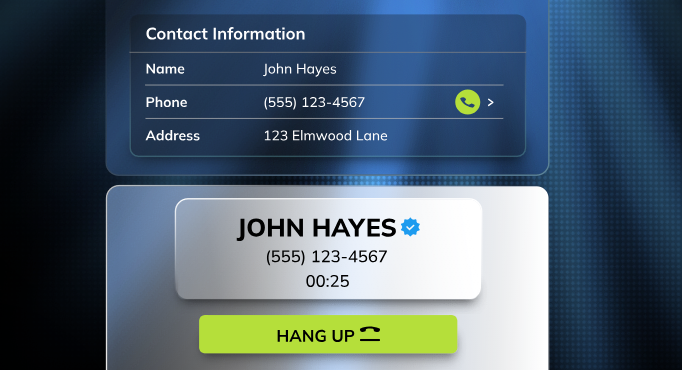Understanding & Engaging Absentee Owners
What is an absentee owner in the real estate market? Learn how to identify and engage with them with proper tools to turn them into beneficial leads.

Understanding & Engaging Absentee Owners

Absentee owners are one of the most overlooked high-potential segments in today’s real estate market.
They are the property owners who don’t live in the homes they own.
Maybe they’ve relocated for work, inherited a house they’re not using, or they’re real estate investors managing multiple rentals or short-term vacation properties from a distance. Whatever the reason, they’re often more open to selling than they let on.
For agents who know how to spot the signs, absentee owners can be a steady pipeline of leads, especially in markets where mobility and investment ownership are on the rise.
In this guide, we’ll break down exactly what it means to be an absentee owner, how to identify and connect with them, and why engaging this group with the right message (and tools) can lead to consistent, long-term success in your business.
Key Findings
☑️ Absentee owners don’t live in the properties they own, which makes them more open to selling or professional management.
☑️ They include investors, inherited property owners, vacation homeowners, and out-of-state landlords.
☑️ Many are motivated but unaware of their property’s current market value.
☑️ Tailored outreach and data-driven tools help agents connect faster and more effectively.
☑️ Espresso Agent provides up-to-date absentee and FRBO leads, CRM integration, and proven prospecting scripts to simplify the process.
What Is an Absentee Owner in Real Estate?
An absentee owner in the real estate market is someone who owns a property but doesn’t live in it. They may reside in another part of the state or halfway across the country. In some cases, they even live abroad and rely entirely on property managers or tenants to maintain their investment.
Why does this matter for real estate professionals? Because absentee owners are frequently open to conversations about selling, renting, or finding professional help to manage their properties.
They may be tired of maintenance issues, dealing with tenants, or just ready to cash out. In other words, they’re motivated, and with the right approach, they can become some of your most responsive leads.
Types of Absentee Owners
The absentee owners’ goals, property types, and willingness to sell can vary dramatically depending on why they own the property and how involved they are in managing it.
Understanding those differences helps agents tailor their messaging and outreach. What resonates with an investor won’t always work with a vacation homeowner or a corporate LLC.
Below is a quick comparison of common absentee owner types and how to best engage each one:
Absentee Owner Type
Typical Property Type
Motivation to Sell
Communication Challenges
Best Prospecting Approach
Individual Investors
Single-family rentals, small multis
Medium – often reevaluating ROI
Guarded, experienced with agents
Data-backed pitch on cash flow or 1031 exchange
Inherited Property Owners
Aging homes, primary residences
High – emotionally or financially burdened
Emotionally detached or overwhelmed
Compassionate outreach via phone or mail
Vacation Property Owners
Seasonal homes, short-term rentals
Medium – depends on usage or income
May not view it as an investment
Talk value, market shifts, or management convenience
Out-of-State Landlords
Rentals across state lines
Medium-High – tired of distance issues
Harder to reach during business hours
Consistent follow-up, focus on convenience
Corporate/LLC Owners
Multi-family, commercial, portfolios
Low-Medium – depends on strategy
Gatekeepers, structured communication
Formal pitch, data-driven insights, direct mail/email
👉 Each of these groups offers unique opportunities if you’re using the right tools. Espresso Agent helps agents source and segment absentee owner leads so you can focus your efforts on those most likely to convert.
Absentee Owners in Today’s Market: Why They Matter Now
In 2023, NBC News reported that, according to AATOM, the share of homes sold to absentee owners had increased since 2020 in 228 of 307 zip code areas across nine major metro areas.
What’s most notable about the absentee market is the preponderance of cash deals. Shehayer Bokhari, a senior economist at Redfin, said:
“We have reports that 75% of all investor purchases are done with cash.”
The same article quoted a Georgia-based Keller Williams agent as saying:
“Absentee owners have cash, they have knowledge, they’re not as concerned about what the home looks like if they’re not living in it.”
MMCG Invest informs that with national rent growth nearly flat in 2024 (+0.9% YoY in Q3), rental incomes are tightening while operating costs rise, making some absentee landlords reconsider their approach. As a result, they become an increasingly important segment for real estate agents.
Prospecting Absentee Owners: Opportunity & Strategy
Absentee owners can be one of the most lucrative lead sources, if you know how to approach them.
Why? Because many absentee owners are sitting on valuable assets with little idea what they’re really worth in today’s market. They’re often:
- Motivated to sell due to rising maintenance or management burdens
- Less emotionally tied to the property since they don’t live in it
- Unaware of local price trends, especially if they live out of town or inherited the home
- Owners of multiple properties, giving agents an opportunity to build long-term relationships, not just single transactions
One of the most effective ways to connect with absentee owners is through FRBO (For Rent By Owner) leads, especially those who are self-managing tenants and rentals without professional help. These owners are often overwhelmed, burned out, or simply curious about selling if the right buyer comes along.
☕ Espresso Agent’s Advantage: Our FRBO leads platform gives you easy access to up-to-date data on rental property owners (many of whom are absentee landlords) with accurate contact info, property details, and built-in prospecting scripts.
Best Practices for Connecting with Absentee Owners
Absentee owners are often overwhelmed with the stress or underperformance of their property. Your job is to position yourself as the solution, not the salesperson.
Here are four best practices to keep in mind:
1. Tailor Your Message
Not all absentee owners are alike. A burned-out DIY landlord needs a different message than someone who inherited a home across the country. Learn what type of owner you're dealing with and shape your outreach accordingly.
2. Lead with Property-Specific Insights
Generic outreach gets ignored. Instead, use public records and Espresso Agent data to reference specific details, like time since purchase, recent area comps, or rental activity. Show them you’ve done your homework.
3. Speak to Their Pain Points
Many absentee owners deal with problem tenants, aging properties, or declining rental income. Don’t sell yourself. Sell relief. Focus on how you can make their life easier through a sale, property repositioning, or better management.
4. Start with Value
The first conversation should be helpful, not pushy. Offer a free market analysis or insights into investor trends in their area. Building trust is key, especially when they’re managing from a distance.
When done right, absentee owners often turn into long-term clients who trust you with more than just one property.
Using Technology to Find and Engage Absentee Owners
In a competitive market, time is one of your most valuable assets. Manually digging through property records, tracking down owner contact info, and managing follow-ups can eat up hours you could spend closing deals. That’s where technology comes in handy.
Modern prospecting tools now allow agents to target absentee owners faster, more precisely and effectively. And Espresso Agent leads the way in helping real estate professionals turn absentee data into actual conversations.
With the Espresso Agent, you will get:
- Daily access to fresh FRBO and absentee owner leads
- A powerful integrated CRM to track outreach, notes, and next steps
- Pre-built phone scripts tailored for absentee owners, making every conversation more confident and strategic
- Advanced data filtering by location, property type, ownership status, and more, so you can choose the highest-quality opportunities
Instead of chasing cold leads or guessing who might be ready to sell, you’ll be focusing your time on owners who fit your target profile and are more likely to take action and convert.
📳 Use Espresso Agent’s Dialer to reach more homeowners in less time!

Conclusion: Start Unlocking the Power of Absentee Owner Leads
Absentee owners are a high-value, often underestimated segment of the real estate market that can generate consistent profits when approached the right way.
Here’s what to remember:
- Absentee owners are frequently motivated to sell, rent, or seek professional help, but many don’t realize what their options are.
- Targeted outreach works best when tailored to the owner’s situation and backed by real data.
- Using tools like Espresso Agent helps you skip the guesswork and get straight to productive conversations.
- Now is the perfect time to reach this group, especially with rising holding costs and changing investor behavior in recent years.
If you’re serious about building a reliable lead pipeline, absentee owners deserve your attention — and the right tools make all the difference.
👉 Explore Espresso Agent’s pricing and plans, and start turning absentee leads into lasting relationships.
%20(1).png)
Should You Hire a Real Estate Coach?
Wondering if a real estate coach is worth it? Learn costs, benefits, and how to decide if coaching fits your business stage.
.jpeg)
The Risks & Rewards of Prospecting Distressed Properties
Learn how to find distressed properties, reach motivated homeowners, and use Espresso Agent’s tools to manage outreach with clarity and confidence.
.jpeg)
Buyer's Market vs. Seller's Market In Real Estate
Buyer’s market vs seller’s market explained. Learn the key differences and how agents should adjust strategies in any market.


